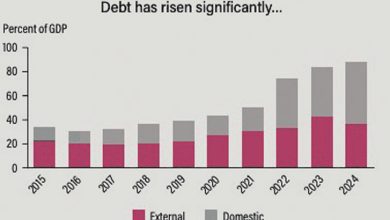IMF finds responses to Inflation insufficient
The International Monetary Fund (IMF) says recent monetary policy responses to the stubbornly high inflation have proven to be insufficient.
Four monetary policy committee (MPC) meetings took place in 2024, during which the policy rate remained fixed at 26 percent, with the last policy rate hike of two percentage points occurring in February 2024.

In its recent analysis on price stabilisation in Malawi, IMF observed that for the most recent policy tightening, the authorities instead relied on the liquidity reserve requirement (LRR) ratio, increasing the LRR for domestic currency deposits by 125 basis points in November 2024.
However, broad money growth remained elevated, with year on year net claims on the government and credit to the private sector growth of 83 percent and 20 percent as of end-February 2025, respectively.
Reads the analysis in part: “Year-over-year, inflation has stayed above 20 percent over the past three years, oscillating around 30 percent since end-2023. This sustained high inflation reflects ongoing economic challenges and pressures on prices.
“The seasonally adjusted month-on-month inflation has also shown a sharp upward trend since 2020, gravitating to about 2 percent average [27 percent annualised] over the past three years, driven by both food and non-food inflation.”
Ironically, RBM maintained the policy rate at 26 percent, the Lombard rate at 20 basis points above the policy rate and the LRR at 10 percent for local currency deposits and 3.75 percent for foreign currency deposits.
RBM governor MacDonald Mafuta-Mwale said in making this decision, the MPC acknowledged the decline in inflation from 30.7 percent in February to 27.1 percent in June 2025.
“However, the committee observed that the recent decline is not sufficient; hence, the current stance is necessary to sustain the downward trend in inflation,” he said.
University of Malawi associate professor of economics Gowokani Chijere Chirwa had also observed that even though inflation is going down, high money supply and re-emerging maize price pressure still exert pressure on inflation outlook.
Economic consultant Booker Matemvu was of the view that tight monetary policy should be matched with a tight fiscal policy that will see reduced local market borrowing and unnecessary fiscal expenditures.
Meanwhile, RBM has revised upwards the 2025 annual average inflation rate forecast from 27.4 percent to 28.5 percent, citing persistent upside risks to food prices.
The policy rate has been maintained at 26 percent for more than a year, leaving commercial banks borrowing rates as high as 36 percent.





